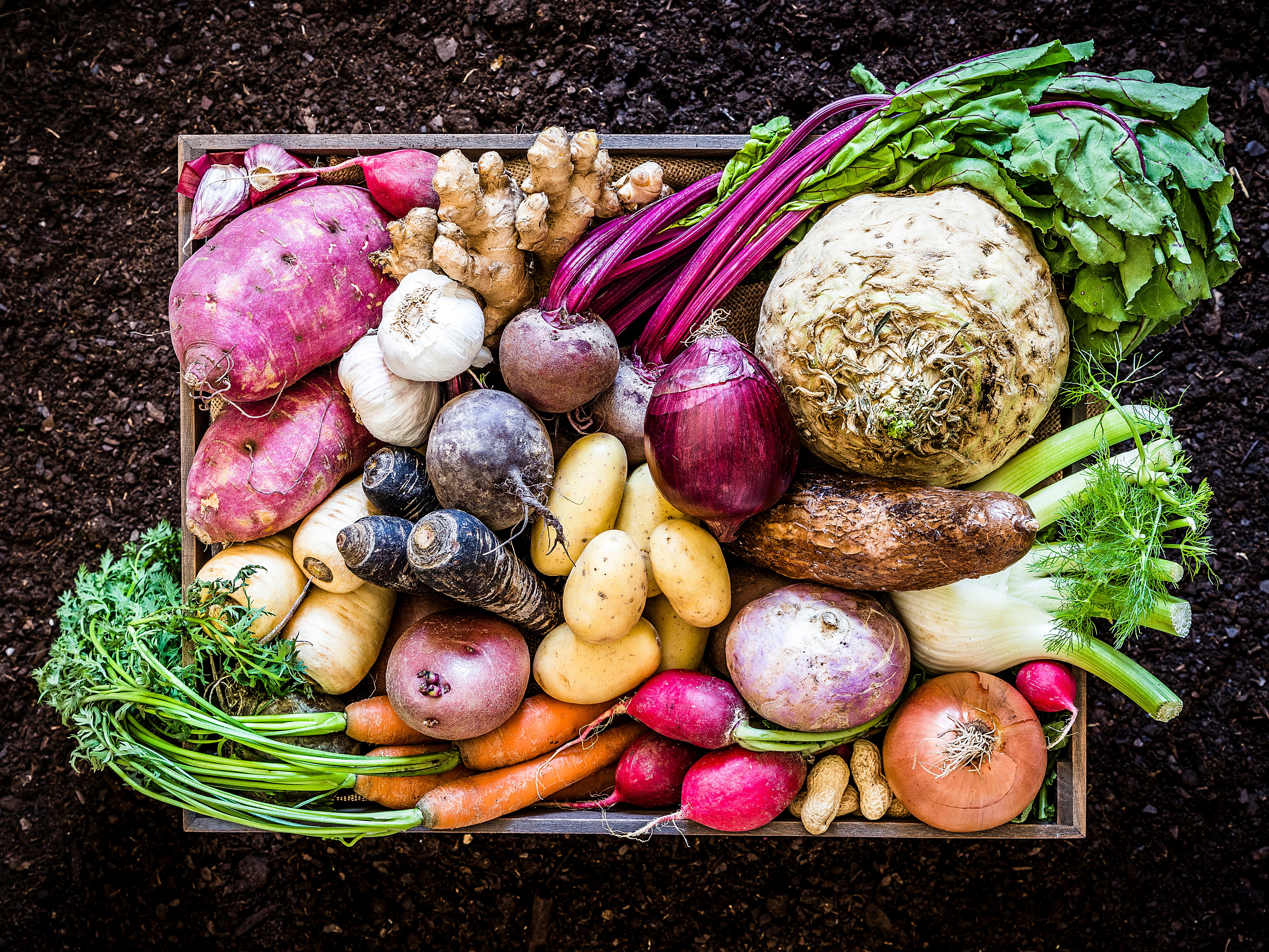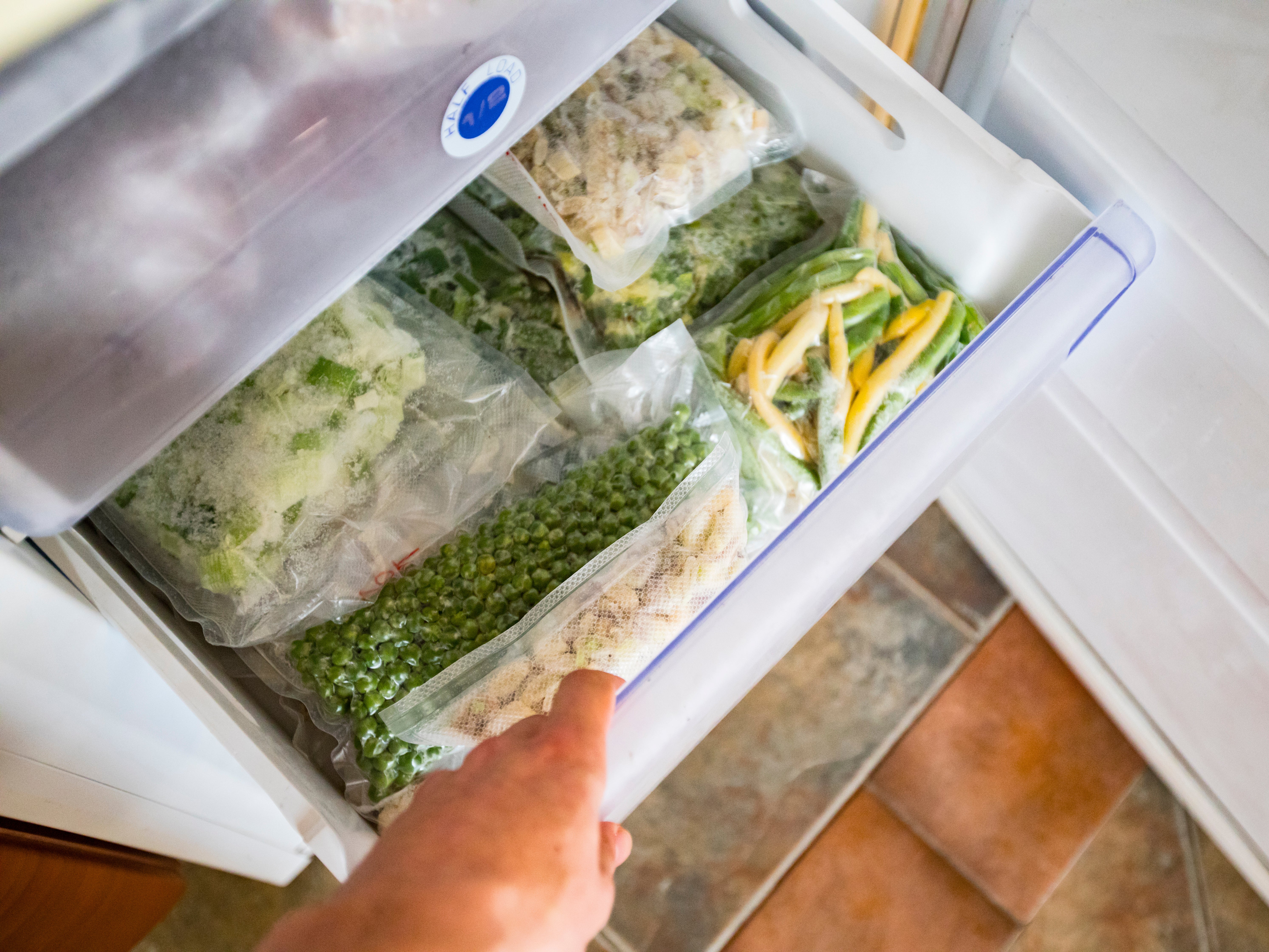Easy ways to cut down on your meat consumption and fight food waste
From easy-to-implement tips to reduce meat consumption at home to simple steps to prolong the life of fresh fruit and vegetables, Leila Dehghan explains how easy it is to go plant-based

Your support helps us to tell the story
From reproductive rights to climate change to Big Tech, The Independent is on the ground when the story is developing. Whether it's investigating the financials of Elon Musk's pro-Trump PAC or producing our latest documentary, 'The A Word', which shines a light on the American women fighting for reproductive rights, we know how important it is to parse out the facts from the messaging.
At such a critical moment in US history, we need reporters on the ground. Your donation allows us to keep sending journalists to speak to both sides of the story.
The Independent is trusted by Americans across the entire political spectrum. And unlike many other quality news outlets, we choose not to lock Americans out of our reporting and analysis with paywalls. We believe quality journalism should be available to everyone, paid for by those who can afford it.
Your support makes all the difference.The Covid-19 pandemic has forced the climate crisis into sharp focus – and with that, our diet. The strong link between food consumption and climate change carries inevitable implications for our dietary habits. Without drastic changes to what we consume, our current food production systems will not be able to feed the mounting world population which is expected to reach 10 billion by the year 2050.
Food production accounts for a quarter of global greenhouse gas emissions, and as it stands, about a third of the world’s food goes to waste. Tons of vegetables, fruits, grains and animal products are spoiled during transportation and distribution or later disposed of in homes, supermarkets and restaurants. What’s more, meat and dairy industries are resource-intensive enterprises, utilising vast sections of land and extensive amounts of water and energy.

In 2019, the EAT-Lancet Commission, led by a panel of 37 experts, concluded that a reduction in meat consumption is instrumental to improving the health of both the environment and humans. The report recommended a shift to a plant-based diet as a way to reduce our food carbon footprint, feed the growing global population, and prevent 11 million deaths per year. Swapping calorie-dense animal-based foods for nutrient-dense plant-based diets has been linked to a wealth of health benefits. Eating plant foods rich in fibre increases satiety, which in turn can facilitate weight loss.
There is strong empirical evidence that confirms an association between a plant-based diet and a lower body mass index (BMI), an index to measure weight. This positive impact on our BMI becomes particularly significant in the face of an indisputable worldwide epidemic of obesity. The World Health Organisation estimates a staggering 2 billion people to be overweight, with 650 million of them being obese. Since obesity is a risk factor for a wide array of diseases, maintaining a healthy body weight mitigates your risk for sinister outcomes from infectious diseases, such as that of Covid-19, heart disease, stroke and cancer.

Obesity is believed to account for 80-85 per cent of the risk of developing type 2 diabetes. One of the underlying pathologies in type 2 diabetes is the reduced insulin sensitivity (in overweight individuals); plant foods, however, which are rich in antioxidants and anti-inflammatory compounds, improve insulin sensitivity. In contrast, animal products contain harmful compounds that increase insulin resistance, including heme iron, nitrates and saturated fats. This is why both Diabetes UK and the British Dietetic Association encourage a diet that is low in saturated fats.
According to a 2019 survey, the public recognises the urgency of tackling climate change and is willing to take action. However, without understanding the environmental and health impact of the food on our plates, removing meat and dairy from our diets remains challenging. It is therefore essential to learn about alternative protein sources, and to recognise that plant-based proteins such as legumes and beans are sufficient in meeting our nutritional needs. There also needs to be an introduction in laws and regulations, from policymakers that are designed to reduce food waste.
Real-life changes to food policies are often eclipsed by other political interests. Yet, there are several things that individuals can do, to take action to reduce their food waste and meat consumption at home. I have shared my top tips that are easy to implement today.

To reduce food waste:
- Plan ahead before going to the shops and only buy what you need.
- Do not overload your fridge. This can prevent air circulation and make food spoil faster.
- Store fruits and vegetables unwashed in the fridge to prevent moulding.
- Remove or loosen the bands around vegetables. This will let them breathe and stay fresh longer.
- Herbs like parsley, basil, mint and dill can be kept like a bouquet of flowers in a glass of water. Remember to change the water if needed.
- Herbs like rosemary, thyme and sage can be wrapped in a damp towel and put in an airtight container.
- Potatoes should not be stored in a plastic bag. Keep them in a mesh bag or basket, away from onions.
- Remove bananas from their store packaging and keep them on the kitchen counter.
- Inspect berries before storing, and remove any that are going bad. Berries need space to breathe, so line a large container with a dry paper towel and place them inside.
- If you have an abundance of fresh produce and no space in your fridge, cut the produce and stash in freezer bags. Frozen vegetables will last up to 6 months and can be used for stews, soups and smoothies. Similarly, you can blend lacklustre vegetables into pureed soups, smoothies or pasta sauces.
If you feel inspired to follow a “planetary health diet”, below are some tips to reduce your meat consumption:
- Try having a meat-free day. Plan ahead by looking up recipes from countries that are known for their plant-based cuisine, like India or Mexico. Or simply sign up to Meat Free Monday to receive tips and recipes.
- When making a meat dish, replace some of the meat with legumes. For example, add lentils to your bolognese or cooked black beans to your burger mixture.
- Create the meat flavour by enjoying plant proteins with meaty texture and consistency such as tofu, tempeh, seitan and jackfruit.
Breaking old habits is challenging, however, each time we choose legumes over meat, we take a small, but significant step towards a sustainable future. The fact that we will also improve our health is the cherry on top.
Leila Dehghan is a nutritionist and education lead for Plant Based Health Professionals.
Join our commenting forum
Join thought-provoking conversations, follow other Independent readers and see their replies
Comments